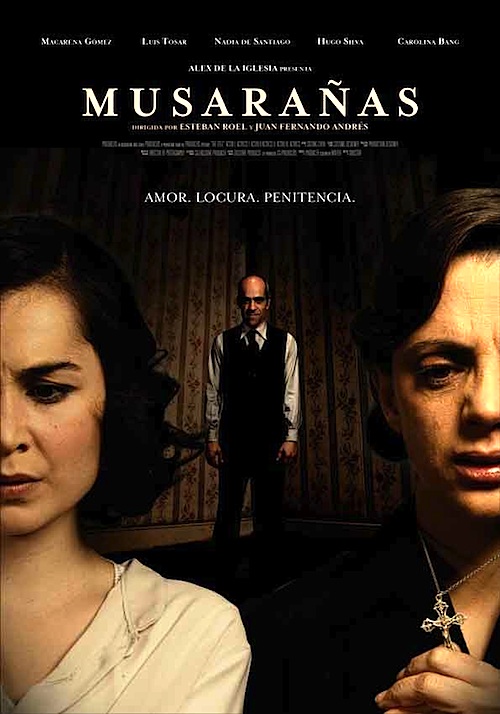By Joe Bendel. The Top! Few crooners made it, because Bobby Shore pretty well had the big time teen idol racket sewn up. But from the North, there was a talented ingénue vocalist—and she had a dream. Perhaps all that didn’t make any sense to you, but it seems like a new Canadian retro sci-fi musical would dearly love to be compared to Jonathan Paizs’ Crime Wave, so there you have it. Of course, it cannot possibly match the indescribably bizarre vibe of Paizs’ cult classic, because how could it? Regardless, there ought to be more lunacy in Jeffrey St. Jules’ Bang Bang Baby, which just released on VOD.
Stepphy Holiday has the golden voice and the innocent look to go far, but she is stuck in Lonesome Pines, her nowheresville Canadian small town. She wanted to compete in a New York talent show, but her drunken codependent father wouldn’t let her leave. However, things might work out for the best when heartthrob Bobby Shore and his very German manager Helmut find themselves stranded in Lonesome Pines (but don’t count on it).
Like clockwork, Shore starts romanticizing Holiday and making her big career promises. Her embarrassing father is a bit of stumbling block, but they could probably work around him. Unfortunately, the town-wide mutations resulting from a chemical spill at the local planet will be a different matter. Rather awkwardly, Holiday will become macabrely preggers when she has no reason to be. On the other hand, it will probably be the best opportunity the torch-bearing Fabian will ever have to win her over.
BBB sounds like absolute lunacy, but St. Jules’ execution is not nearly as off-the-hook crazy as it should be. Frankly, he seems to have fallen in love with these characters, because he spends a disproportionate amount of time on their hopes, dreams, and personal relationships, while hardly ever showing us any mutants. Playing it straight is a defensible strategy, but he still needs to bring the madness. Instead, BBB just feels restrained.

Nonetheless, Jane Levy deserves credit for her lead vocals and her earnest energy. Justin Chatwin’s Shore comes across like a refugee from a 1990s John Waters movie, but that’s not necessarily wrong. As Helmut, Kristian Bruun cranks the exaggerated German accent up to eleven in a performance that is refreshingly unrepentant in its snottiness, but Peter Stormare is largely underemployed as the self-pitying George Holiday.
The songs of BBB are surprisingly polished and era-appropriate, but none of them are particularly memorable. It is still impressive St. Jules was able to stage an entirely original movie musical. Nice, but not the knockout punch you’re hoping for, Bang Bang Baby is now available on most VOD platforms, including iTunes.
LFM GRADE: C+
Posted on November 12th, 2015 at 9:25pm.




